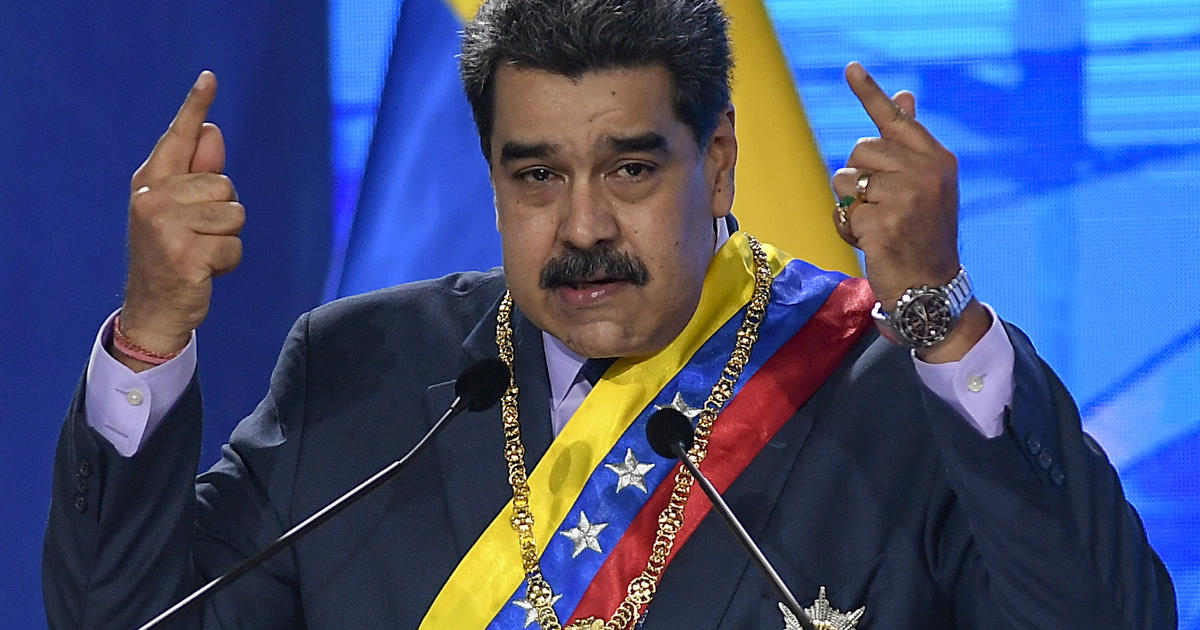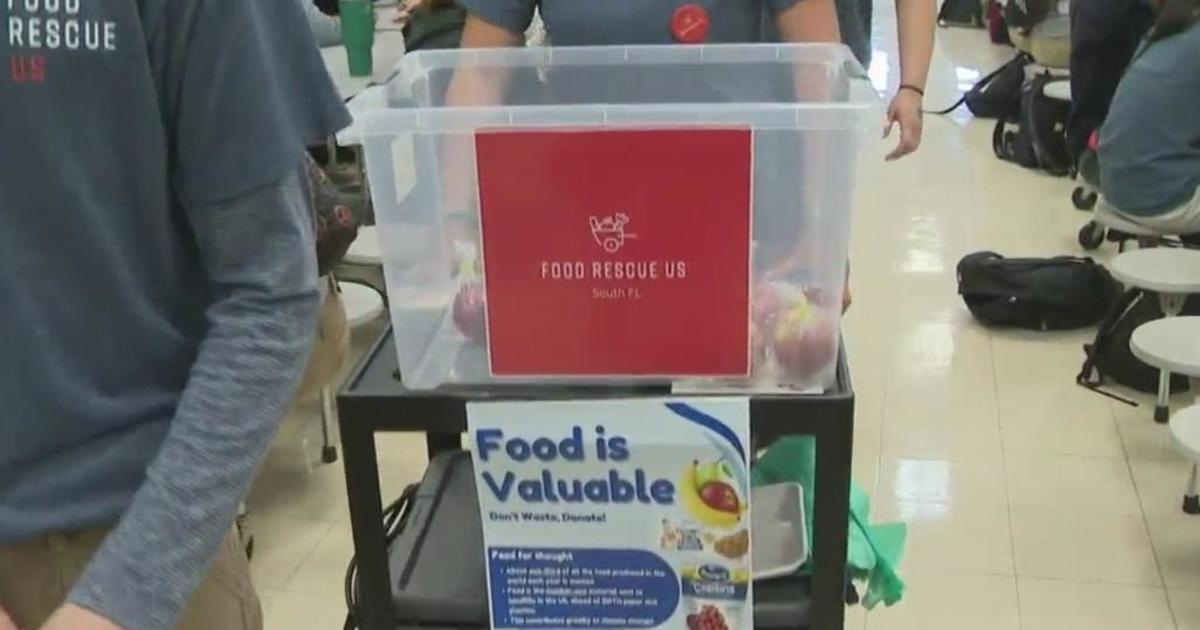Trump Snaps Back Iran Sanctions Aiming To Change, Not Topple Tehran
Follow CBSMIAMI.COM: Facebook | Twitter
WASHINGTON (CBSMiami/CNN) -- President Donald Trump signed an executive order Monday, re-imposing many sanctions on Iran.
Trump threatened "severe consequences" for those who continue to trade with Iran, as administration officials said Monday that newly re-imposed US sanctions are meant to change the regime's behavior, not topple leaders in Tehran.
"The United States is fully committed to enforcing all of our sanctions, and we will work closely with nations conducting business with Iran to ensure complete compliance. Individuals or entities that fail to wind down activities with Iran risk severe consequences," Trump said in a statement about penalties that will go back into effect at 12:01am Tuesday.
A senior administration official said that, "our stated policy has not been regime change, it's been to modify the Iranian regime's behavior."
The official, speaking to reporters on a conference call with others from the administration, said that Trump remains open to meeting Iran's leaders without preconditions.
"The President has been very clear none of this has to happen, he will meet with the Iranian leadership anytime" to discuss another nuclear deal "that curbs their malign activity," the official said. "What he was saying there is that he's not going to give up anything in advance of a meeting, that there are no preconditions," the official said.
President Hassan Rouhani told Iran's state television Monday that he would welcome talks, and blamed the US for backing out of dialogue.
"If there is sincerity, Iran has always welcomed dialogue and negotiations," Rouhani said. "I don't have pre-conditions. If the US government is willing, let's start right now."
Rouhani expressed concern that Trump has backed out of previous dialogue and negotiations with Iran. "Even in the current new administration we talked with the Americans on the sidelines of the United Nations General Assembly," he said.
Referring to former Secretary of State Rex Tillerson, Rouhani said, "Mr. Tillerson held a conversation with our Foreign Minister and so the ones that turned their back on dialogue and negotiations was Mr. Trump and Mr. Trump's administration. And this is against the nation of Iran and the national interests of Iran."
Europe 'Deeply Regrets' The Move
Trump announced in May the US was withdrawing from the Iran nuclear deal, formally known as the Joint Comprehensive Plan of Action, or JCPOA. That agreement established curbs on Iran's nuclear program in exchange for sanctions relief. Administration officials say Iran has used funds freed up by the pact to sow instability across the Mideast.
"The regime has used the windfall of newly accessible funds it received under the JCPOA to build nuclear capable missiles, fund terrorism, and fuel conflict across the Middle East and beyond," Trump said in his Monday statement, repeating a claim his administration has often made.
Iranian Foreign Minister Mohammad Javad Zarif slapped back at Trump in a Monday tweet declaring that US "hypocrisy knows no bounds."
Referring to the 73rd anniversary of the US dropping an atomic bomb on Hiroshima, Japan, Zarif said, "today in 1945, US became 1st & only country to ever use nukes. And on an urban center of all targets. 73 yrs later - w/ vastly expanded nuke arsenal it refuses to dismantle in defiance of NPT commitment - US militarism hasn't faded. Neither has its utter disregard for human life."
Zarif continued, "Trump Administration wants the world to believe it's concerned about the Iranian people. Yet the very first sanctions it reimposed have canceled licenses for sales of 200+ passenger jets under absurd pretexts, endangering ordinary Iranians. US hypocrisy knows no bounds."
Monday's announcement covers the first of two rounds of sanctions the US is unilaterally reimposing as a result of leaving the pact. The other signatories to the deal, including the EU, Russia and China, are sticking with the accord. In a statement Monday, the EU, UK, France and Germany said they "deeply regret" the US action. The EU announced it would take legal steps to protect EU companies "doing legitimate business in Iran."
"The JCPOA is working and delivering on its goal, namely to ensure that the Iranian program remains exclusively peaceful, as confirmed by the International Atomic Energy Agency (IAEA) in 11 consecutive reports," the joint statement read.
The US official said the EU move to protect its companies "is not something we're particularly concerned about." A second US official added that "nearly 100 international firms have announced their intent to leave the Iranian market" and that the US continues its work to build an international coalition to enforce sanctions.
State and Treasury officials have been traveling around the world to coordinate the pressure campaign, and have visited 20 countries to date, the second official said. "We are very intent on using these authorities," a third US official said, and will "use them aggressively. We are seeing a substantial impact."
The US officials offered no dollar value on the expected impact on Iran's economy. When asked if it was being pushed to collapse, the third official said, "I'm not going to predict what's going to happen to the Iranian economy, other than to say we are intent on using these economic provisions to our advantage."
The second administration official said Iran's economy was already on a "downward spiral" before Trump decided to reimpose sanctions and pointed to Iran's weakening currency, rising unemployment and growing protests across the country as evidence.
Increasing Pressure
The Monday announcement marks the end of a transition period the administration gave companies to wind down contracts with Iran in order to avoid penalties.
Monday's sanctions cover the purchase or acquisition of US dollars by the Iranian government; trade in gold or precious metals; the direct and indirect sale, supply or transfer to or from Iran of graphite, raw or semi-finished metals such as aluminum, steels and coal; as well as significant transactions of the Iranian currency; and on the country's auto sector.
"The next 90 days will see increasing pressure culminating in" the reimposition of sanctions on Iran's energy sector, the third official said. The second round of sanctions, due in November, is expected to be tougher, as it will take hundreds of thousands of barrels of Iranian crude oil off the market, according to industry sources.
Those sanctions will also target Iran's Central Bank, the country's port operators and shipping and ship building sectors, as well as the provision of insurance and financial messaging services.
(© Copyright 2018 CBS Broadcasting Inc. Cable News Network, Inc., a Time Warner Company, contributed to this report)



